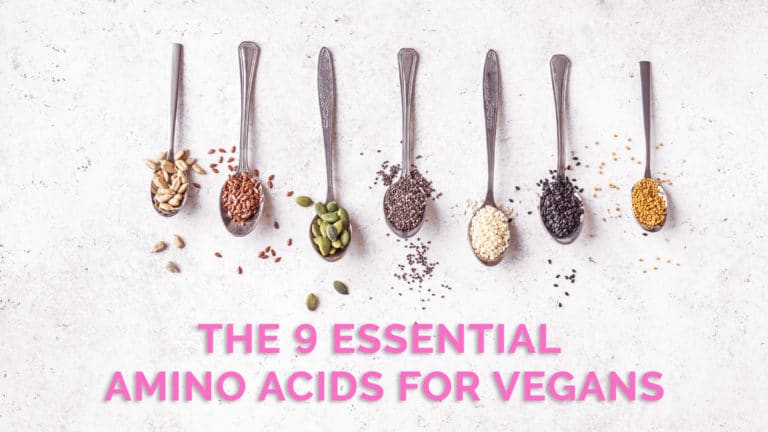Table of Contents
Amino acids are the building blocks of the human body as they are, essentially, what protein is composed of. Our bodies use amino acids to repair tissue, regenerate cells, and carry out various other essential functions.
Without amino acids, the body would be unable to carry out its most basic function — the preservation and continuation of the individual.
Types of Amino Acids
There are 20 amino acids that fall into two categories: non-essential and essential.
The human body produces non-essential amino acids for various uses. These nutrients are called non-essential as the body synthesizes them, and we do not need to obtain them from food sources.
These are the 11 Non-Essential Amino Acids:
- Alanine
- Arginine
- Asparagine
- Aspartic acid
- Cysteine
- Glutamic acid
- Glutamine
- Glycine
- Proline
- Serine
- Tyrosine
Essential amino acids are vital nutrients that the human body cannot synthesize. The only way to ensure that your body gets a steady supply of essential amino acids is by obtaining these nutrients through your diet.
Here’s a list of the 9 Essential Amino Acids:
- Histidine
- Isoleucine
- Leucine
- Lysine
- Methionine
- Phenylalanine
- Threonine
- Tryptophan
- Valine
Foods Containing Essential Amino Acids
You can ensure a steady supply of essential amino acids by consuming a complete diet. Any protein-rich food source will contain most (if not all) nine essential amino acids.
That being said, the quantity of each amino acid will differ based on the food source.
Popular Non-Vegan Sources of Amino Acids
1. Meat
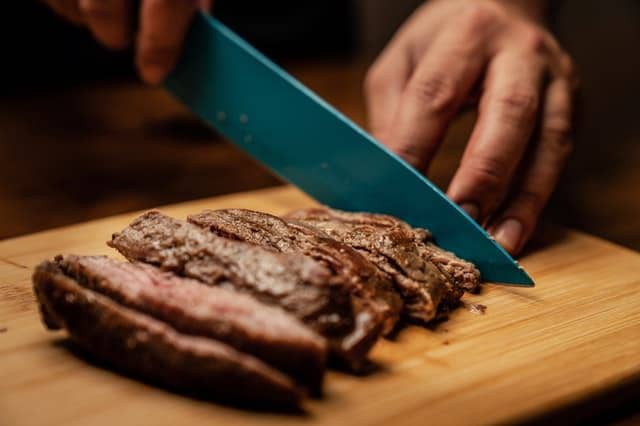
All meat is rich in protein and contains the nine essential amino acids required for proper functioning.
However, lean meats are the optimal source of essential amino acids as they are free from the saturated fats found in red meat. Lean meat causes fewer diseases and does not hinder the absorption of nutrients as much as red meat, making it a more efficient source of amino acids.
2. Fish

Most fish are rich in essential amino acids and also give the body a healthy supply of omega-3.
However, you want to be more cautious with fish and its source, as most seafood today is laden with mercury poisoning.
3. Dairy

Cottage cheese, yogurt, and other low-fat, high-protein dairy products often contain all nine essential amino acids.
4. Eggs
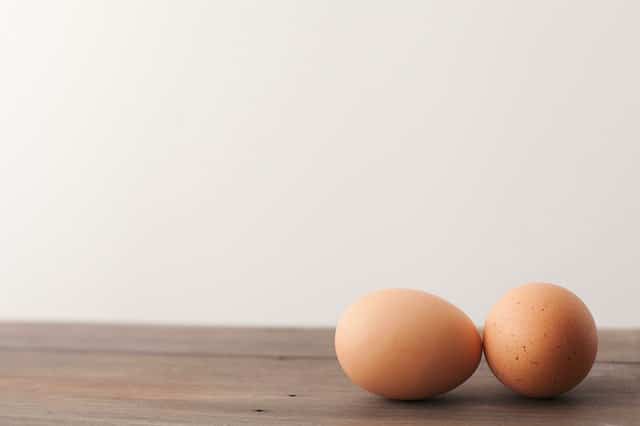
Eggs are also a complete source of protein, and a single egg contains all the essential amino acids required by the human body.
Most resources on the web will claim that complete protein sources can only be found in non-vegan foods. However, as long as you eat the right food, you can ensure you’re getting all nine essential amino acids from a vegan diet.
How to get Essential Amino Acids on a Vegan Diet
As we are already aware, a vegan diet abstains from any animal products, seeking to obtain all nutrition from plant sources.
Not only do plants have all the proteins we need, but they are also devoid of the saturated fats and cholesterol that accompany animal protein sources.
Even incomplete plant proteins (food sources without all nine essential amino acids) can be paired with other plant protein sources to ensure you’re consuming a holistic nutrient profile.
For example, some grains like brown rice are low in lysine, an essential amino acid. As such, it cannot be considered a complete source of protein. But eating rice with lentils or beans, both of which are high in lysine, will ensure that you’re getting all the essential amino acids.
Most plant sources of protein contain many if not all the essential amino acids. And consumed with other plant protein sources, you can ensure you’re getting the nutrients your body needs.
Here are a few vegan sources of essential amino acids.
1. Quinoa
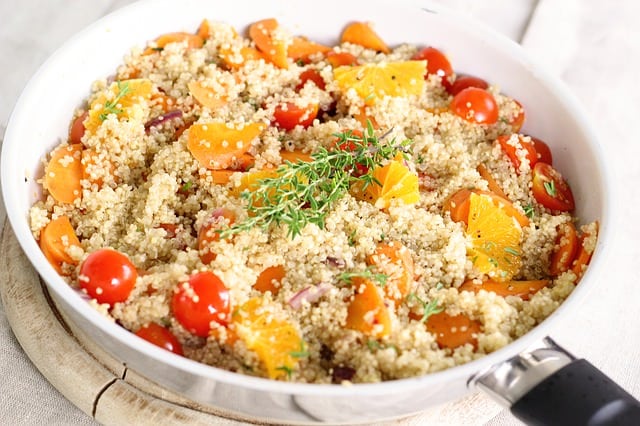
Quinoa is a super grain that has been in vogue in the health industry for years now. But it isn’t just a fancy new health fad being taken up by fitness fanatics.
Quinoa is a complete source of protein, containing all nine essential amino acids required by the body. A single cup (185 gms) of quinoa provides roughly 8 grams of protein and 5 grams of fiber. The presence of fiber helps your body digest and synthesize the amino acids effectively.
Quinoa also provides other essential nutrients that can’t be found in other grains, including magnesium, zinc, and iron. The best part is that quinoa can replace the grains you’re used to cooking with, and it makes for a protein-rich substitute to regular breakfast cereals.
2. Buckwheat
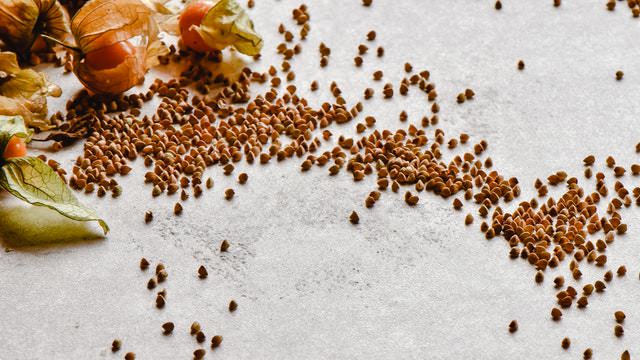
Japanese soba noodles are made using buckwheat, and they’re packed with protein. While buckwheat isn’t as popular as quinoa or even as protein-rich (one cup contains 6 grams), it’s a complete source of protein containing all nine essential amino acids.
Buckwheat can be consumed like quinoa, as part of the main course accompanied by gravy, or as a breakfast cereal when appropriately cooked.
3. Sprouted Bread
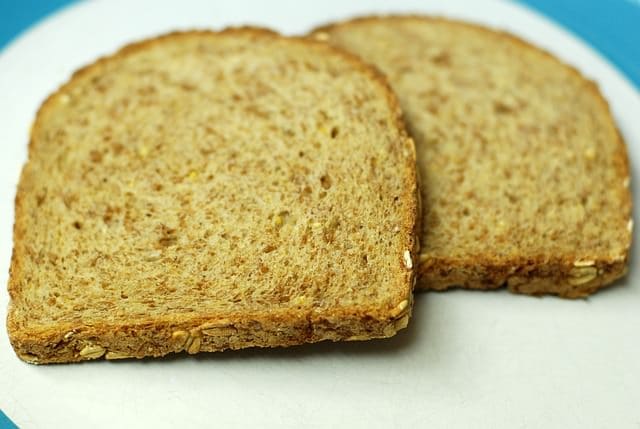
Bread made from sprouted grains and legumes is much richer in amino acids than regular bread. One such example is Ezekiel bread, a type of bread made using sprouted grains, including barley, soybeans, wheat, lentils, and millets.
As mentioned earlier, some grains may lack a specific essential amino acid that needs to be included through another food source.
In Ezekiel bread, whole grains and legumes ensure that all nine essential acids are made available to the human body. This means most sprouted bread can be considered a complete source of protein.
Studies suggest that when grains and legumes are sprouted, the process exponentially increases the amino acids in the food made with these ingredients.
4. Spirulina
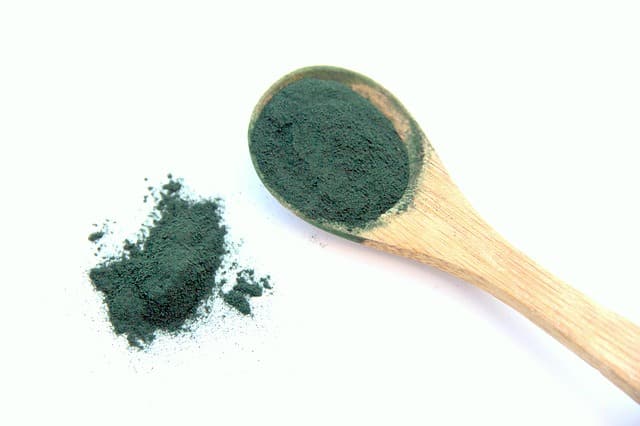
Perhaps the most comprehensive protein available to man, spirulina is a vegan source of amino acids like no other on the planet.
A single spoon (7 grams) of spirulina contains a whopping 4 grams of protein and is an excellent supplement for vegans. Spirulina is a complete source of protein and includes the nine essential acids in significant quantities.
In addition to amino acids, spirulina is rich in antioxidants, B vitamins, copper, iron, and other essential nutrients needed by the body.
As such, spirulina is an effective supplement for both vegan and non-vegans, and can help balance out nutritional deficits in the body.
5. Hemp Hearts
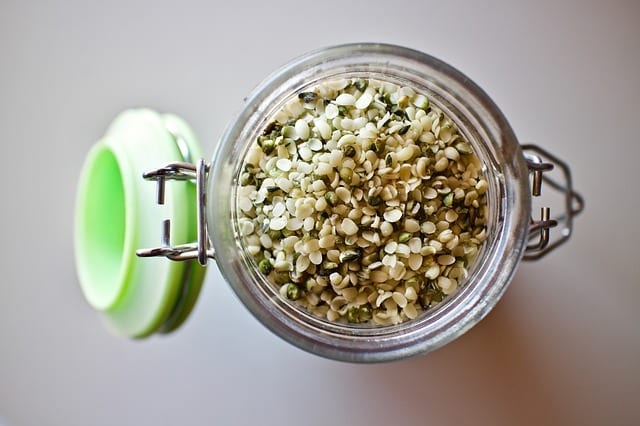
Obtained from the cannabis plant, hemp hearts are the edible white pieces procured by cracking open the hemp seed. It’s important to remember that the hemp seed itself can be toxic and cause digestive issues, so it’s best to purchase hemp hearts from a company distributing them directly.
Hemp hearts are incredibly nutritious and a complete source of protein. Aside from the nine essential amino acids, hemp hearts are also a rich source of omega-3 and omega-6 essential fatty acids, which are vital to the body.
The best part is that hemp hearts can be added to almost any dish. They have a mild nutty flavor and can enhance the taste of salads, smoothies, cereal bowls, and desserts.
6. Chia Seeds

Chia seeds are a complete source of protein, giving the body all the essential amino acids along with a serving of omega-3 fatty acids.
With the correct technique, chia seeds can be made to mimic eggs and used in baking vegan goodies. However, they can also be sprinkled on cereals, salads, and any dish you want to fortify with essential amino acids.
It’s important to remember that while chia seeds contain all the essential amino acids, the quantities vary. In fact, chia seeds are low in histidine, which needs to be supplemented with other sources of amino acids.
7. Soy Protein
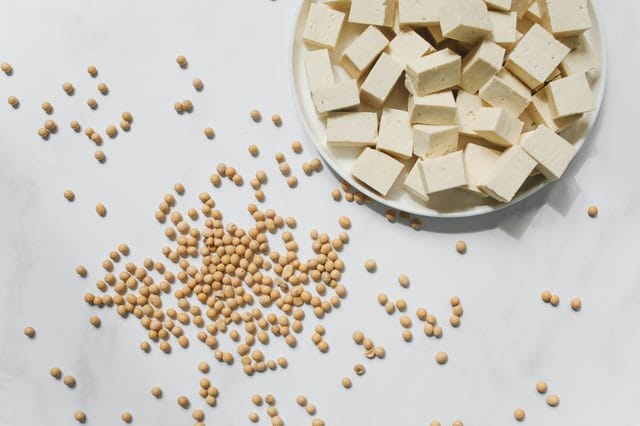
Most soy products are sources of complete protein, giving the human body all the essential amino acids.
Tofu – The most popular soy product out there, tofu is made using soy milk pressed into blocks that can be chopped up and cooked in various ways. Tofu is highly bland with a mild trace of soy and can absorb any flavors you add to it.
Tempeh – Made using fermented soybeans, tempeh tends to be much denser than tofu, with a thick, nutty flavor. Like tofu, tempeh takes on the taste and flavor of the spices you add to it. Additionally, tempeh has a texture similar to meat, making it the ideal vegan substitute for meat dishes.
Soy Milk – Soy milk, extracted from soybeans, is a complete protein source and an excellent supplement to a diet deficient in protein. You can add soymilk to cereals and smoothies and even use it for baking certain goodies.
Conclusion
The nine essential amino acids are vital to the functioning of a healthy body. A lack of any of these nutrients for a prolonged period can lead to muscle loss, especially in older adults.
But as you can see, all the amino acids can be obtained even on a vegan diet. Aside from the food sources here, do your research and pair foods that give you different amino acids so you’re able to obtain all the necessary nutrients.
